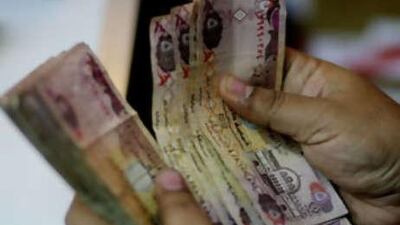Doubts are growing over whether the Government's pending injection of Dh70 billion (US$19.05bn) into the banking system will be enough to easy the credit crunch that has hit UAE companies. Analysts say the extra money, which is expected to be deposited in banks by the Government, is likely to shore up confidence in the banking sector, but may be insufficient to prevent a sharp decline in loan growth, which would weigh down the economy. Loan growth may slow to between 20 per cent and 25 per cent during the next four quarters, from about 50 per cent in June, even with the emergency injection, according to Raj Madha, a banking analyst at EFG-Hermes. "The large corporate sector would be the most likely place that would feel it, because it's the least profitable area of lending for banks and it's the place where the international cross-border banks have been most active." Over the past decade, companies in the UAE, including some leading names, have financed much of their rapid growth by borrowing directly from abroad or domestic banks that, in turn, tapped the international markets for funds. Domestic bank lending has increased by an average of 35 per cent a year over the past four years in the UAE, making it the only country in the GCC where value of loans exceeded deposits as of June, according to ratings agency Standard & Poor's. Now, with international lenders unwilling to lend, UAE banks have been left struggling to satisfy the country's demand for corporate and government financing almost entirely on their own. According to Mr Madha, the Government's move to inject funds into the banking system should replace a large portion of international funding and shore up confidence in the banking sector. With more than $15 billion in large corporate loans coming due by the end of this year, according to Merrill Lynch, there has been increasing worry over whether the government will take steps to ensure that such entities continue to be able to access funding. However, as some banks struggle to balance out their loan books and deposit base, they could decide to hold on to the extra government money. Western economies such as the US and Europe have similar concerns that their banks will choose not to expand lending as aggressively as needed by the economies. In the UAE, banks will have an incentive to lend because they probably will have to pay interest on the government funds. Choosing not to re-lend would cut into banks' profit margins. The UAE's more healthy banks are likely to re-lend the government money, in order to gain some revenue from it. But others could choose to hoard the funds if the value of loans they have made gets too far ahead of the deposits they have on hand to support those loans. In such a case, the government may have to use its powers of "moral suasion" to pressure banks to put the funds to use in the wider economy, according to a Saudi banker. The fact that the Government owns large stakes in many banks would give extra leverage, he said. Although the Government has declined to release any specifics on how the Dh70bn injection will work, bankers expect the Ministry of Finance and Industry to distribute it in the form of direct deposits. Among the questions still being asked is whether the Government will divide up the funds between banks according to their size, or according to their need. Today, Dubai-based mortgage providers Amlak Finance and Tamweel, two large government-related corporations who recently entered merger talks, announced that they were taking special measures to secure funding. According to a joint statement posted on the Dubai bourse website, the two entities were working with the government "to arrange access to liquidity and funding alternatives, to the extent necessary, to fulfil ongoing business plans". The three-month Emirates interbank offer rate (Eibor), which tracks how much banks charge each other for short-term funds, has more than doubled since June, a sign of how tight funding has become in the country. Today, it reached 4.65 per cent, down from 4.66 on Friday. tpantin@thenational.ae

Doubts grow over Dh70bn injection
Although the extra money will likely shore up confidence in the banking system, analysts say it may prove insufficient.
Most popular today
5
